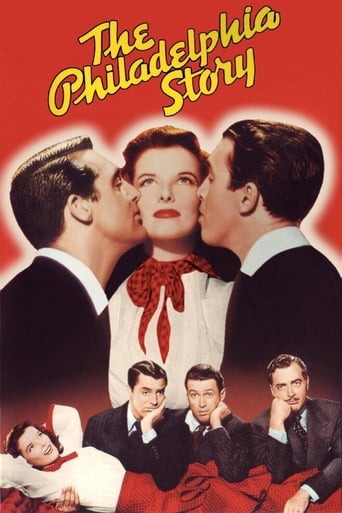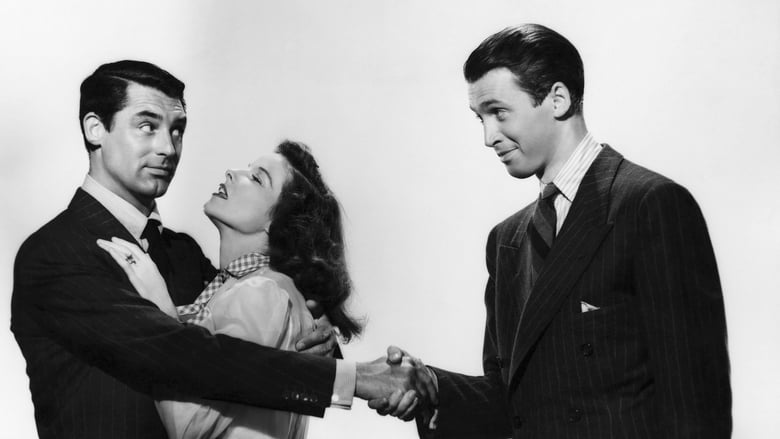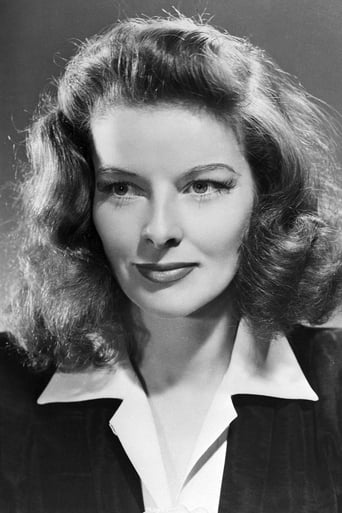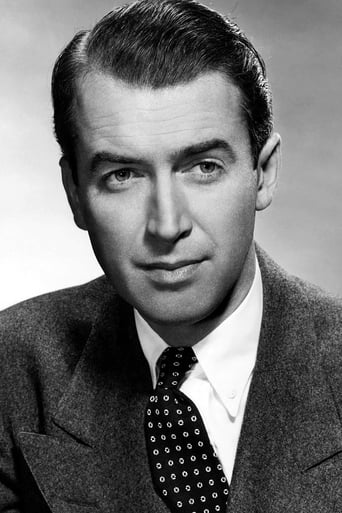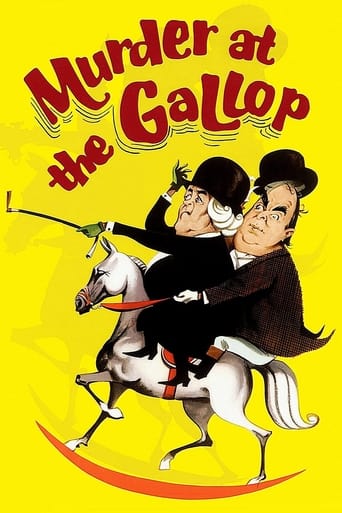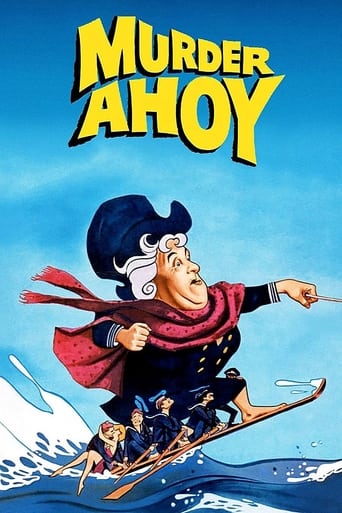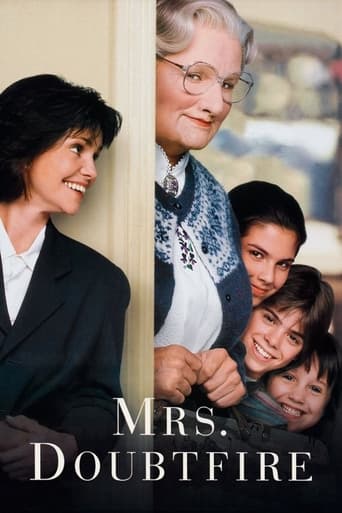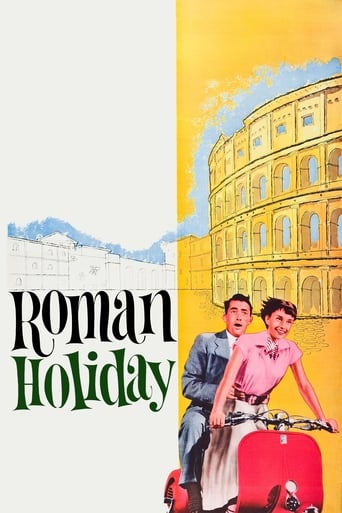The Philadelphia Story (1940)
When a rich woman's ex-husband and a tabloid-type reporter turn up just before her planned remarriage, she begins to learn the truth about herself.
Watch Trailer
Cast


Similar titles
Reviews
Plenty to Like, Plenty to Dislike
I am only giving this movie a 1 for the great cast, though I can't imagine what any of them were thinking. This movie was horrible
Let me be very fair here, this is not the best movie in my opinion. But, this movie is fun, it has purpose and is very enjoyable to watch.
It is an exhilarating, distressing, funny and profound film, with one of the more memorable film scores in years,
Cary Grant, James Stewart and Katherine Hepburn together on the big screen was something you couldn't see quite often even in the era of classic Hollywood. Pretty thin script, average movie and some flat lined acting from the famous threesome was even more exotic movie happening. Yet, the creators of "Philadelphia story" managed to do just that, filming a forgettable flick with megastar casting and that's just a shame. "Philadelphia story" is one of the most overrated oldies in the history of Hollywood.
The witty characters and situations of Philip Barry's play doesn't hide the fact that everyone of these people is pretty close to certifiably nuts. Katharine Hepburn's Tracy Lord has her charms, but there's a motive behind that charm that brings on suspicion. She's on the verge of her second marriage, having already divorced the allegedly constantly drunk Cary Grant, probably tipsy all the time during their marriage because of her obviously selfish disposition. Now she's engaged to the stuffy John Howard, on the verge of a huge society bash, and Grant shows up with the idea of pointing out her mistake in choosing a replacement. Along with him are Spy magazine reporters James Stewart and Ruth Hussey who want all the dirt, although Stewart hates being put on a story that he would obviously like to see utilized as a bird cage liner.A biting commentary on the idiocy of high society and its domination of much of the press, this spoofs the lives of socialites like Barbara button (ironically one of Grant's wives), Doris Duke and Brenda Fraser, all "poor little rich girls" whose lives became daily copy for society columns and really not worth much. Barry gives it good to these ladies through leading lady Hepburn who us in denial of her image as a "goddess", claiming that she wants to be loved, not worshiped, but entirely one dimensional in her definition of what love is. Barry makes it clear that it us through the fault of society for creating these images, and the individual families for allowing them to believed. At first, Tracy leads Stewart on in that goddess image, but his direct approach with her opens her eyes to the ridiculousness of her life. So by the night before her wedding, she's got three men after her, all for different reasons.When her father arrives and eventually describes to his daughter's face her lack of a loving heart, the look on Hepburn's face is pure destruction even though she responds in denial. She's got a rather dizzy mother (Mary Nash), a directly honest, trouble making sister (an outrageously hysterical Virginia Weidler) and a fight to the death for her honor uncle (Roland Young) who takes a fancy to the sardonic Hussey. What a swell party indeed this will be, especially under the direction of George Cukor.While Stewart won the Best Actor Oscar for this, I would have preferred to see him nominated in the supporting actor category. He's brilliant in his performance, but it is not a focus in the story in spite of some terrific scenes. Grant scored in this and two other comedies ("His Girl Friday" and "My Favorite Wife") and deserved the leading nomination with Henry Fonda the deserving winner. Hepburn gave quite a different performance than her earlier RKO work, and this is a step above in sophistication her almost as brilliant work in Barry's "Holiday" remake. But overall, this is classic screwball romantic comedy at its best, pretty much flawless, and it's unfortunate that Hepburn never worked with either Grant or Stewart again.
The Philadelphia Story (1940): Dir: George Cukor / Cast: Katherine Hepburn, Cary Grant, James Stewart, Ruth Hussey, John Howard: Hilarious romantic comedy about modern romance within the high class. Katherine Hepburn plays a high society woman who is engaged but her ex-husband appears thus making everyone uneasy. James Stewart plays a reporter whom Hepburn becomes smitten with. While very funny with a variety of personalities director George Cukor expertly presents elements of class and lifestyles. Cukor previously made a version of Romeo and Juliet as well as Camille and The Adventures of Tom Sawyer. This is one of his best films. Hepburn is wonderful as a woman seeking real romance and perhaps feels that her engagement to the strict and traditional John Howard isn't what she was seeking after all. She indulges in her free spirit guilt of romance thus placing her in the glaring eyes of sophistication. Cary Grant is hilarious as meddling ex-husband. James Stewart steals scenes as the reporter who spends a drunken evening with Hepburn. Ruth Hussey is superb as his photographer. John Howard plays the potential groom whose love life is about to unravel with two other suitors. It regards marriage and romance but also positioning one's economic status. One could easily observe that in the end, that is what makes news, isn't it? Score: 10 / 10
Released in 1940, "The Philadelphia Story" is about a Main Line Philadelphia woman, Tracy Lord (Katharine Hepburn), whose marriage is imminent. At the last moment, there are certain unexpected attendees who challenge her view of life. Listed as a comedy and a romance by IMDb, it certainly is that, but the film does contain dialogue that is biting, somber and outright mean.The cast is stellar and it is difficult to imagine how any film starring Hepburn, Jimmy Stewart, and Cary Grant could not be worth watching. This film certainly is worth watching, but I disagree with those who assert that all three actors turn in their best work here. Hepburn's performances in many other films surpasses her portrayal of Tracy, e.g. "On Golden Pond" or "Stage Door." The same can be said of Jimmy Stewart in "Mr. Smith Goes to Washington", "Rear Window" or "It's a Wonderful Life." For Cary Grant, see "North by Northwest", "Notorious", or "His Girl Friday" which was also released in 1940.As a love story, it has a rather complex plot--not just the usual triangle. Tracy's fiancé, George Kittredge (John Howard), is excited to wed the desirable Miss Lord, but he might be somewhat out of the loop as he keeps his distance from the bride-to-be on the last day before the nuptials. Her ex-husband, C. K. Dexter Haven (Cary Grant), is about as welcome as an unreachable itch, irritating Tracy at every turn and constantly inserting his verbal barbs. Another complication is the writer/reporter Macauley Connor (Jimmy Stewart), who arrives to do an inside story on the ceremonies for a tabloid.A broader view of the film reveals that its subject is Tracy's relationships with five men--the three just mentioned and her father and her Uncle Willie, who are personae non gratae due to their vices. Tracy discovers through these five that she has much to learn, despite her cool, confident countenance.Hepburn starred in the Broadway play not long after leaving Hollywood in response to the theater owners placing her on a "Box Office Poison" list. She purchased the film rights to the play, then sold them to MGM with the stipulation she could choose the producer, director and the starring actors. The success of the film must have been sweet revenge.The film has many admirers, including me. Stepping slightly off track, I will disagree with many of those admirers who assert that the musical remake named "High Society" is not in the same league. I do not think a remake should be judged solely in relation to the original, especially when genre lines are crossed. I find the musical to be equally engaging, but for different reasons (the music, the different stars, etc.). Both should be appreciated for their particular, fine attributes.

